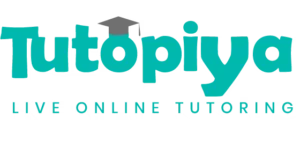
IGCSE Subject Combinations Guide: Smart Choices for Your Future Success
The Ultimate Guide to IGCSE Subject Combinations: Making Smart Choices for Your Future
Choosing the right IGCSE subject combination is one of the most important academic decisions you’ll make. Your subject choices not only affect your performance in the IGCSE exams but also shape your pathway to A-Levels, IB Diploma Programme, and ultimately your university degree and career.
In this comprehensive guide, we’ll explore the best IGCSE subject combinations, career-specific pathways, and expert tips to help you make informed decisions that align with your strengths, interests, and future aspirations.
Written by Nuha Ghouse, an IGCSE and A-Levels national award winner with First Class Honours in Mathematics from Imperial College London, and member of the Tutopiya Educational Team. With firsthand experience in navigating international curricula and achieving academic excellence, this guide provides practical insights to help you succeed.
TABLE OF CONTENTS
- Understanding IGCSE Subject Requirements
- English Language Options: ESL vs First Language
- Popular IGCSE Subject Combinations
- Subject Combinations by Career Path
- Core vs Extended Subjects: What You Need to Know
- Creating a Balanced Subject Combination
- Taking Subjects Not Offered by Your School
- Common Mistakes to Avoid
- How Your IGCSE Choices Affect A-Levels and University
- Expert Tips for Choosing Your Subjects
UNDERSTANDING IGCSE SUBJECT REQUIREMENTS
Before diving into specific combinations, it’s essential to understand the basic structure of IGCSE subject requirements:
Minimum Requirements
Most schools require students to take between 7-10 IGCSE subjects. The typical requirement includes:
- English Language (Core or First Language)
- Mathematics (0580, 0607, or 0606)
- At least one Science (Biology, Chemistry, or Physics)
- 4-7 optional subjects from various groups
Subject Groups
Cambridge IGCSE subjects are organized into five main groups:
- Languages - English, Chinese, Spanish, French, etc.
- Humanities & Social Sciences - Economics, Business Studies, Geography, History
- Sciences - Biology, Chemistry, Physics, Combined Science
- Mathematics - Mathematics, Additional Mathematics, International Mathematics
- Creative, Technical & Vocational - Computer Science, ICT, Art & Design, Music
Pro Tip: Most universities and colleges expect students to have a balanced combination across different subject groups.
ENGLISH LANGUAGE OPTIONS: ESL VS FIRST LANGUAGE

One of the most important decisions you’ll make is choosing between English as a Second Language (ESL) and English First Language. This choice significantly impacts your university applications and future academic opportunities.
English First Language (0500)
Who it’s for: Students whose first language is English or who have near-native proficiency
Course Focus:
- Advanced literary analysis and interpretation
- Sophisticated writing techniques and styles
- Critical reading of complex texts
- Creative and analytical writing
- In-depth study of language usage and effects
Assessment Options:
Option 1 - Two Written Exams:
- Paper 1 (50%) - Reading passages from a variety of text types
- Paper 2 (50%) - Directed Writing and Composition
Option 2 - One Exam + Coursework:
- Paper 1 (50%) - Reading passages from a variety of text types
- Component 3 (50%) - Coursework Portfolio
Optional Component:
- Component 4 - Speaking and Listening (separate endorsement)
University Recognition: Widely accepted as proof of English proficiency by top universities worldwide
English as a Second Language (0510/0511)
Who it’s for: Students whose first language is NOT English but who have good English communication skills
Course Focus:
- Practical communication skills
- Everyday English usage
- Reading comprehension
- Functional writing
- Listening and speaking in real-world contexts
Two Syllabus Options:
Cambridge IGCSE English as a Second Language (0510) - Count-in Oral:
- Paper 1 (40%) - Reading and Writing (Core or Extended)
- Paper 2 (40%) - Reading and Writing (Core or Extended)
- Component 4 (20%) - Listening (Core or Extended)
- Component 5 - Speaking Test (counted in final grade)
Cambridge IGCSE English as a Second Language (0511) - Oral Endorsement:
- Paper 1 (40%) - Reading and Writing (Core or Extended)
- Paper 2 (40%) - Reading and Writing (Core or Extended)
- Component 4 (20%) - Listening (Core or Extended)
- Component 5 - Speaking Test (separate endorsement, not counted in grade)
Core vs Extended:
- Core: Grades C to G
- Extended: Grades A* to E
University Recognition: Accepted by most universities as proof of English proficiency, though some competitive programs may prefer First Language
Key Differences at a Glance
| Aspect | English First Language (0500) | English as a Second Language (0510/0511) |
|---|---|---|
| Difficulty Level | Advanced - Native speaker level | Intermediate - Proficient non-native |
| Literary Analysis | In-depth, sophisticated | Basic to moderate |
| Writing Style | Creative, analytical, formal | Functional, practical |
| Text Complexity | Complex literary texts | Accessible everyday texts |
| Target Grades | A* to G | Core: C-G, Extended: A*-E |
| University Preference | Preferred for competitive programs | Accepted for most programs |
| Typical Students | Native speakers or bilingual | Non-native speakers |
Which One Should You Choose?
Choose English First Language (0500) if:
✓ English is your first language or you’re bilingual since early childhood
✓ You studied in English-medium schools from primary level
✓ You read English literature for pleasure and understand complex texts
✓ You can write sophisticated essays with advanced vocabulary
✓ You’re aiming for competitive university programs (Law, Literature, Medicine at top universities)
✓ You consistently achieve high grades in English at school
Choose English as a Second Language (0510/0511) if:
✓ English is not your first language
✓ You started learning English later in life (after age 7-8)
✓ You’re more comfortable with practical communication than literary analysis
✓ You find complex literary texts challenging
✓ You want to demonstrate English proficiency for university entrance
✓ You’re stronger in sciences/mathematics than humanities
Important Considerations
For University Applications:
- Top UK Universities (Oxford, Cambridge, Imperial, LSE): Usually prefer or require English First Language for humanities and some other programs
- US Universities: Generally accept both, focusing more on standardized test scores (SAT, ACT)
- Australian Universities: Usually accept both for most programs
- Medical Schools: Often prefer English First Language due to communication demands
- Engineering/Science Programs: Generally accept both
Strategic Advice:
-
Be Honest About Your Ability: Taking First Language and getting a C is less impressive than taking ESL Extended and getting an A*
-
Check University Requirements Early: Some specific programs require First Language - research this before choosing
-
Consider Your Overall Subject Balance: If you’re taking ESL, ensure you have strong grades in other subjects to demonstrate academic capability
-
ESL Extended is Highly Respected: An A* in ESL Extended demonstrates excellent English proficiency
-
You Can Take Both: Some students take ESL for the grade and also take First Language to demonstrate higher proficiency
-
Speaking Component Choice (0510 vs 0511): Choose 0510 if you’re strong in speaking and want it counted; choose 0511 if speaking is your weaker skill
Can You Switch Between ESL and First Language?
Yes, but timing is crucial:
- Before starting IGCSE: Discuss with your school and take placement tests
- First term of Year 1: Usually possible if your teacher agrees
- After first term: Very difficult and not recommended due to different curriculum content
- After Year 1: Generally not possible
Additional English Qualifications
Some students also consider:
English Literature (0475):
- Can be taken alongside either English First Language or ESL
- Focuses on literary analysis of poetry, prose, and drama
- Highly valued by universities for humanities programs
- Recommended for students passionate about literature
IELTS/TOEFL:
- Standardized English proficiency tests
- Sometimes required by universities in addition to IGCSE English
- Typically taken closer to university application time
How ESL/First Language Affects Subject Combinations
Your English choice influences other subject decisions:
If taking English First Language:
- Consider adding English Literature for humanities pathway
- Opens doors to competitive law and humanities programs
- Demonstrates strong language skills valued in all fields
If taking English as a Second Language:
- Focus on excelling in other subjects (Math, Sciences)
- Consider taking an additional language to demonstrate multilingual ability
- Ensure strong grades in core subjects to compensate
Pro Tip: If you’re between ESL Extended and First Language, consult with your English teacher and take diagnostic tests. Choose the level where you can achieve your highest grade - universities value strong performance over course difficulty in this case.
POPULAR IGCSE SUBJECT COMBINATIONS

Here are some of the most popular and well-balanced IGCSE subject combinations that keep doors open for various academic pathways:
Combination 1: The Science Track
Perfect for: Future doctors, engineers, scientists, and technical professionals
- English First Language (0500) or ESL Extended (0510/0511)
- Mathematics (0580/0607)
- Additional Mathematics (0606)
- Physics (0625)
- Chemistry (0620)
- Biology (0610)
- Chinese/Foreign Language
- Computer Science/ICT
- Economics/Business Studies
Why it works: This combination provides a strong foundation in STEM subjects, essential for medicine, engineering, and natural sciences at university level. Non-native speakers can take ESL Extended and still be competitive for top science programs.
Combination 2: The Business & Economics Track
Perfect for: Future business leaders, economists, accountants, and entrepreneurs
- English First Language (0500) or ESL Extended (0510/0511)
- Mathematics (0580)
- Economics (0455)
- Business Studies (0450)
- Accounting (0452)
- Chinese/Foreign Language
- Chemistry or Physics
- Geography/History
- Computer Science/ICT
Why it works: Combines quantitative skills with business knowledge, ideal for commerce, business administration, and economics degrees. Strong mathematical and business subject performance matters more than English level for these programs.
Combination 3: The Humanities Track
Perfect for: Future lawyers, journalists, social scientists, and humanities scholars
- English First Language (0500) - Strongly Recommended (or ESL Extended for non-native speakers)
- English Literature (0475)
- Mathematics (0580)
- History (0470)
- Geography (0460)
- Economics (0455)
- Chinese/Foreign Language
- Biology/Chemistry
- Business Studies
Why it works: Develops critical thinking, analytical writing, and research skills essential for law, social sciences, and humanities. Note: English First Language is highly recommended for this pathway as top law and humanities programs strongly prefer it. Non-native speakers should aim for A* in ESL Extended.
Combination 4: The Balanced All-Rounder
Perfect for: Students who want maximum flexibility for future choices
- English First Language (0500) or ESL Extended (0510/0511)
- Mathematics (0580)
- Physics (0625)
- Chemistry (0620)
- Economics (0455)
- Chinese/Foreign Language
- Geography (0460)
- Computer Science
- Biology/Business Studies
Why it works: Offers excellent balance between sciences, humanities, and social sciences, keeping all university pathways open. Suitable for both native and non-native English speakers.
Combination 5: The Technology & Innovation Track
Perfect for: Future computer scientists, IT professionals, and tech entrepreneurs
- English First Language (0500) or ESL Extended (0510/0511)
- Mathematics (0580)
- Additional Mathematics (0606)
- Computer Science (0478)
- Physics (0625)
- Chemistry (0620)
- Chinese/Foreign Language
- Economics/Business Studies
- ICT/Art & Design
Why it works: Strong emphasis on logical thinking, programming, and technical skills needed for technology careers. Technical skills and mathematical ability are prioritized over English proficiency level for these programs.
SUBJECT COMBINATIONS BY CAREER PATH

Let’s explore specific career pathways and the IGCSE subject combinations that best support them:
Medicine & Healthcare
Essential Subjects:
- Biology (0610) - MANDATORY
- Chemistry (0620) - MANDATORY
- Mathematics (0580/0607)
- Physics (0625) - HIGHLY RECOMMENDED
Additional Subjects:
- English First Language
- Foreign Language
- Any humanity subject
Why these subjects matter: Medical schools require strong foundations in biology and chemistry. Physics helps with understanding body mechanics and medical technology.
Engineering (All Disciplines)
Essential Subjects:
- Mathematics (0580/0607) - MANDATORY
- Additional Mathematics (0606) - HIGHLY RECOMMENDED
- Physics (0625) - MANDATORY
- Chemistry (0620) - RECOMMENDED
Additional Subjects:
- Computer Science
- ICT
- English First Language
- Design & Technology
Why these subjects matter: Engineering programs require strong mathematical and physics foundations. Additional Mathematics is crucial for advanced engineering concepts.
Law & Legal Studies
Essential Subjects:
- English First Language (0500) - MANDATORY
- English Literature (0475) - HIGHLY RECOMMENDED
- History (0470) or Geography (0460)
- Economics (0455) or Business Studies (0450)
Additional Subjects:
- Mathematics
- Foreign Language
- Philosophy/Global Perspectives
- One science subject
Why these subjects matter: Law requires excellent written communication, analytical thinking, and understanding of society and economics.
Business & Finance
Essential Subjects:
- Mathematics (0580) - MANDATORY
- Economics (0455) - HIGHLY RECOMMENDED
- Business Studies (0450) - RECOMMENDED
- Accounting (0452) - RECOMMENDED
Additional Subjects:
- English First Language
- Computer Science/ICT
- Geography
- Foreign Language
Why these subjects matter: Business schools value quantitative skills combined with understanding of economic principles and business operations.
Computer Science & IT
Essential Subjects:
- Mathematics (0580/0607) - MANDATORY
- Additional Mathematics (0606) - HIGHLY RECOMMENDED
- Computer Science (0478) - MANDATORY
- Physics (0625) - RECOMMENDED
Additional Subjects:
- English First Language
- ICT
- Economics
- Any other science
Why these subjects matter: Computing degrees require strong mathematical and logical reasoning skills, along with programming foundations.
Architecture & Design
Essential Subjects:
- Mathematics (0580) - MANDATORY
- Art & Design (0400) - HIGHLY RECOMMENDED
- Physics (0625) - RECOMMENDED
- Design & Technology - RECOMMENDED
Additional Subjects:
- English First Language
- Geography
- History
- Computer Science
Why these subjects matter: Architecture combines creativity with technical knowledge, requiring both artistic skills and scientific understanding.
Psychology & Social Sciences
Essential Subjects:
- English First Language (0500) - MANDATORY
- Mathematics (0580) - MANDATORY
- Biology (0610) - RECOMMENDED
- One humanity (History/Geography/Economics)
Additional Subjects:
- Psychology (if available)
- Foreign Language
- Chemistry
- Business Studies
Why these subjects matter: Psychology requires understanding of biological processes and statistical analysis, combined with social awareness.
CORE VS EXTENDED SUBJECTS: WHAT YOU NEED TO KNOW

Many IGCSE subjects offer both Core and Extended tiers. Understanding the difference is crucial for making informed choices:
Core Curriculum
- Target Grades: C to G
- Difficulty Level: Standard
- Best for: Students who need a solid foundation but may find the subject challenging
- University Impact: Generally acceptable for most courses, but competitive programs prefer Extended
Extended Curriculum
- Target Grades: A* to E
- Difficulty Level: More challenging
- Best for: Students aiming for top grades and competitive university programs
- University Impact: Required or strongly preferred by top universities, especially for related degree programs
Key Subjects with Core/Extended Options:
-
Mathematics (0580)
- Core: Papers 1 & 3
- Extended: Papers 2 & 4
-
Sciences (Biology, Chemistry, Physics)
- Core: Papers 1, 3, and 5/6
- Extended: Papers 2, 4, and 5/6
-
English as a Second Language (0510/0511)
- Core: Count-in speaking/listening
- Extended: Count-in speaking/listening
Strategic Advice:
- Take Extended in subjects relevant to your intended career path
- It’s better to achieve A*/A in Core than C/D in Extended if you’re genuinely struggling
- Most competitive universities expect Extended in core subjects (Math, Sciences)
- Discuss with your teachers to make realistic decisions based on your abilities
CREATING A BALANCED SUBJECT COMBINATION

A well-balanced IGCSE combination should include:
The 5-Subject Rule
Ensure you have at least one subject from each of these categories:
- Language & Communication - English First Language or Literature
- Mathematics - Core mathematics at minimum
- Science - At least one pure science (Biology, Chemistry, or Physics)
- Humanity - History, Geography, Economics, or Business Studies
- Additional Language - Chinese, Spanish, French, etc.
Balancing Difficulty Levels
Don’t take all difficult subjects! Here’s a strategic approach:
- 3-4 Challenging subjects (Mathematics Extended, Additional Math, Triple Sciences)
- 2-3 Moderate subjects (Economics, Business Studies, Computer Science)
- 2-3 Subjects you enjoy (Foreign Language, Geography, subjects aligned with interests)
Essay vs. Non-Essay Balance
- Essay-heavy subjects: English Literature, History, Geography, Business Studies
- Non-essay subjects: Mathematics, Sciences, Computer Science
Recommendation: Have a 60:40 or 50:50 ratio to prevent burnout from too much essay writing or too many calculations.
Practical Considerations
- Timetable Clashes: Check with your school about subject availability
- Teacher Quality: Strong teachers can make difficult subjects more manageable
- Personal Interest: Choose at least 2-3 subjects you genuinely enjoy
- Future Plans: Ensure your combination supports your intended career path
TAKING SUBJECTS NOT OFFERED BY YOUR SCHOOL

The Challenge: Limited Subject Availability
Many schools, even excellent ones, don’t offer the full range of IGCSE subjects due to various constraints:
- Limited teaching staff with expertise in specialized subjects
- Low student demand for certain subject combinations
- Timetable clashes that prevent taking preferred combinations
- Budget constraints that restrict subject offerings
- School specialization (e.g., science-focused schools may not offer extensive humanities)
The Problem: Your school’s limitations shouldn’t limit your future opportunities.
Why Taking the Right Subjects Matters More Than School Convenience
University Entry Requirements are Non-Negotiable:
- Medical Schools require Biology and Chemistry - no exceptions
- Engineering Programs require Physics and Mathematics - no alternatives accepted
- Economics Degrees strongly prefer or require Economics IGCSE
- Computer Science Programs increasingly expect Computer Science IGCSE
- Law Programs prefer strong humanities backgrounds
Real-World Example:
A student wants to study Medicine at university but their school only offers Combined Science (not separate Biology and Chemistry). Without taking these subjects privately, they would be ineligible for medical school applications, regardless of how excellent their other grades are.
The Solution: Taking IGCSE Subjects Privately
You can take IGCSE subjects as a private candidate alongside your school studies. This means:
✓ You study the subject outside of school hours
✓ You take the official Cambridge IGCSE exams at an authorized exam center
✓ Your certificate is identical to school-based candidates
✓ Universities accept private candidate qualifications equally
✓ You can take as many or as few additional subjects as needed
How Tutopiya Can Help: Your Partner for Private IGCSE Subjects

Tutopiya specializes in helping students take IGCSE subjects that aren’t available at their school. As a British Council partner, we provide comprehensive support for private candidates.
What We Offer:
1. Complete Subject Tuition
- Expert IGCSE tutors with proven track records in every subject
- Full syllabus coverage following Cambridge IGCSE specifications
- Live one-on-one classes or small group sessions
- Flexible scheduling to fit around your school timetable
- Personalized learning plans tailored to your pace and needs
2. Exam Registration Support
As a British Council partner, Tutopiya can guide you through:
- Finding authorized exam centers in your location
- Understanding registration deadlines and procedures
- Completing registration paperwork correctly
- Choosing between exam series (May/June or October/November)
- Understanding exam fees and payment processes
3. Comprehensive Study Materials
- Complete study guides for each subject
- Past papers with detailed mark schemes
- Topic-specific worksheets and practice questions
- Revision resources and exam techniques
- Access to recorded lessons for review anytime
4. Progress Tracking & Assessment
- Regular mock exams to gauge readiness
- Detailed progress reports for parents and students
- Targeted revision plans based on weak areas
- Exam technique coaching for maximum performance
- Predicted grades to help with university planning
Common Subjects Taken Privately Through Tutopiya
Most Popular Private Subjects:
- Additional Mathematics (0606) - Critical for engineering and top science programs
- Computer Science (0478) - Essential for technology careers
- Economics (0455) - Required for economics and business degrees
- Individual Sciences (Biology, Chemistry, Physics) - When school only offers Combined Science
- Accounting (0452) - Valuable for business and finance pathways
- Foreign Languages - Chinese, Spanish, French (when not offered at school)
- Business Studies (0450) - For students in academic-focused schools
- Art & Design (0400) - For students at STEM-focused schools
How It Works: Step-by-Step Process
Step 1: Consultation (FREE)
- Discuss your career goals and university requirements
- Identify which subjects you need that your school doesn’t offer
- Assess your current academic level and available study time
- Create a realistic study plan
Step 2: Subject Selection & Planning
- Confirm which subjects to take privately
- Decide on Core or Extended tier
- Choose exam series (May/June or Oct/Nov)
- Plan your study schedule around school commitments
Step 3: Enrollment & Tutor Matching
- Match with expert tutor(s) for your chosen subjects
- Schedule your regular lesson times
- Receive access to learning platform and materials
- Begin your structured learning journey
Step 4: Regular Tuition (Typically 12-24 Months)
- Attend weekly live sessions (or more frequently if needed)
- Complete homework and practice assignments
- Take regular assessments to track progress
- Receive feedback and personalized support
Step 5: Exam Registration
- Tutopiya guides you through registration process
- Register at authorized exam center in your area
- Complete registration typically 4-5 months before exams
- Confirm exam dates and venue
Step 6: Intensive Revision
- Final 2-3 months focus on exam preparation
- Past paper practice and timing strategies
- Mock exams under exam conditions
- Final topic reviews and doubt-clearing sessions
Step 7: Take Your Exams
- Sit for official Cambridge IGCSE exams
- Same examination standards as school candidates
- Receive your results and certificates
- Celebrate your achievement!
Is Taking Subjects Privately Right for You?
Consider taking subjects privately if:
✓ Your preferred university course requires specific subjects your school doesn’t offer
✓ You have a clear career goal that needs particular IGCSE subjects
✓ Your school has timetable clashes preventing your ideal combination
✓ You’re passionate about a subject not available at your school
✓ You need additional subjects to meet university minimum requirements (e.g., 7-8 IGCSEs)
✓ You want to strengthen your application with relevant subject knowledge
You can manage it if:
✓ You have 3-5 hours per week for each additional subject
✓ You’re self-motivated and can study independently with guidance
✓ You have parental/family support for the commitment
✓ You can balance school work with additional study
Time Commitment & Planning
Realistic Study Requirements:
- One additional subject: 3-5 hours per week
- Two additional subjects: 6-10 hours per week
- Three or more subjects: Consider carefully - requires exceptional time management
Best Practice:
- Start at the beginning of Year 1 (Grade 9/10) for full 2-year preparation
- Minimum 12-15 months needed for thorough preparation
- Intensive courses available for single subjects (10-12 months minimum)
Cost Considerations
Taking subjects privately is an investment in your future. Consider:
Typical Costs Include:
- Tuition fees (varies by subject and lesson frequency)
- Exam registration fees (paid to Cambridge/exam center)
- Study materials and resources (often included with Tutopiya)
Value Proposition:
- Opens doors to university courses worth hundreds of thousands in scholarship potential
- Prevents gap years or foundation courses that cost more
- Enables direct entry to preferred degree programs
- Long-term career benefits from studying your passion
Tutopiya offers:
- Competitive pricing with flexible payment plans
- Package discounts for multiple subjects
- FREE trial lesson to ensure good fit
- FREE consultation to plan your pathway
Success Stories: Students Who Took Subjects Privately
Case Study 1: Engineering Aspirant
“My school didn’t offer Additional Mathematics, which I needed for Engineering. Through Tutopiya, I studied it privately and achieved an A*. I’m now studying Mechanical Engineering at Imperial College London.” - Ahmed, Singapore
Case Study 2: Future Doctor
“My school only offered Combined Science, but medical schools need separate Biology and Chemistry. Tutopiya helped me take both privately. I got A* in both and received offers from 3 medical schools!” - Priya, India
Case Study 3: Business Scholar
“I attended a science-focused school with no Economics or Business Studies. Taking these privately with Tutopiya helped me get into LSE for Economics!” - Marcus, UK
Frequently Asked Questions
Q: Can I really take IGCSE subjects outside of school?
A: Absolutely! Cambridge IGCSE examinations are open to private candidates worldwide. Your certificates are identical to school-based candidates.
Q: Will universities accept privately taken subjects?
A: Yes, 100%. Universities cannot distinguish between school and private candidates on certificates. They evaluate all IGCSE qualifications equally.
Q: How do I register for exams as a private candidate?
A: Tutopiya will guide you through finding an authorized Cambridge exam center near you and completing the registration process. As a British Council partner, we have extensive experience with this.
Q: Can I take some subjects at school and others privately?
A: Yes! This is very common. Most students take 5-7 subjects at school and 1-3 subjects privately.
Q: When should I start if I want to take subjects privately?
A: Ideally at the start of Year 1 (Grade 9/10) for a comfortable 2-year preparation. However, intensive courses can be done in 12-15 months for motivated students.
Q: What if I’m already in Year 2?
A: Contact Tutopiya immediately. We can assess if an intensive program is feasible for your chosen subjects and create an accelerated study plan.
Q: Do I need to inform my school?
A: It’s courteous to inform them, but not required. Some schools are supportive; others may have policies about it. Check your school’s guidelines.
Q: Can I take the Extended tier privately even if I take Core at school?
A: Yes! Some students take Core at school for one subject and Extended privately to achieve higher grades, though this requires taking two separate exams.
Take Action: Don’t Let School Limitations Limit Your Future
Your career aspirations are too important to be limited by your school’s subject offerings. Taking IGCSE subjects privately is a proven pathway that thousands of students use successfully every year.
Ready to explore taking subjects privately?
Contact Tutopiya today for a FREE consultation to discuss:
- Which subjects you need for your university goals
- Whether taking subjects privately is right for you
- How to create a manageable study plan
- Tutor matching and getting started
Or book a FREE trial lesson to experience Tutopiya’s teaching quality firsthand.
Don’t compromise on your dreams because of subject availability. Let Tutopiya help you build the perfect IGCSE combination for your future success.
COMMON MISTAKES TO AVOID

Mistake 1: Choosing Subjects Because Friends Are Taking Them
Why it’s wrong: Your friends may have different strengths, interests, and career goals.
Solution: Make decisions based on YOUR abilities and aspirations, not peer pressure.
Mistake 2: Taking Too Many Difficult Subjects
Why it’s wrong: Overloading with difficult subjects can lead to burnout and lower overall grades.
Solution: Balance challenging subjects with ones you find more manageable or enjoyable.
Mistake 3: Avoiding Subjects You’ll Need Later
Why it’s wrong: Some university courses require specific IGCSE or A-Level subjects.
Solution: Research university requirements early and plan accordingly.
Mistake 4: Choosing Based on Subject Name Alone
Why it’s wrong: You might not understand what the subject actually involves.
Solution: Research syllabi, talk to current students, and attend subject information sessions.
Mistake 5: Not Considering Your Learning Style
Why it’s wrong: Some subjects require memorization, others require problem-solving or creativity.
Solution: Choose a combination that matches your learning strengths and preferences.
Mistake 6: Ignoring Practical Subjects
Why it’s wrong: Subjects like Computer Science and ICT are increasingly valuable in the modern workplace.
Solution: Consider including at least one practical/technical subject in your combination.
Mistake 7: Not Thinking About A-Level Preparation
Why it’s wrong: Your IGCSE subjects directly affect your A-Level options.
Solution: Choose subjects that prepare you for your intended A-Level combination.
HOW YOUR IGCSE CHOICES AFFECT A-LEVELS AND UNIVERSITY

A-Level Prerequisites
Many A-Level subjects require specific IGCSE backgrounds:
Mathematics A-Level
- Requires: IGCSE Mathematics (preferably Extended)
- Recommended: Additional Mathematics
- Minimum grade: Usually B or above
Further Mathematics A-Level
- Requires: IGCSE Additional Mathematics
- Recommended: A*/A in Mathematics
- Essential for: Top engineering and mathematics programs
Sciences A-Levels (Biology, Chemistry, Physics)
- Requires: Corresponding IGCSE science (Extended preferred)
- Recommended: Grade B or above
- Note: Double Award Science may not be sufficient for some schools
Economics A-Level
- Requires: IGCSE Mathematics (minimum grade B)
- Recommended: IGCSE Economics (but not essential)
- Beneficial: Business Studies or Geography
English Literature A-Level
- Requires: IGCSE English Literature (usually grade B or above)
- Recommended: English First Language
- Note: English as Second Language may not be accepted
IB Diploma Programme Considerations
If you’re considering the IB DP after IGCSE:
- IB requires breadth: Choose subjects across different groups
- IB Mathematics: Strong IGCSE Math background essential
- Language requirements: IB requires two languages
- Sciences: Solid foundation in at least one science
University Course Requirements
Different degree programs have specific IGCSE expectations:
Medicine
- Essential: Biology, Chemistry (both Extended, grades A/A*)
- Preferred: Physics, Mathematics (Extended)
- Minimum: Usually 7-8 IGCSEs at grade B or above
Engineering
- Essential: Mathematics Extended (A/A*), Physics Extended (A/A*)
- Preferred: Additional Mathematics, Chemistry
- Minimum: Usually 5-6 IGCSEs at grade B or above in relevant subjects
Law
- Essential: English First Language (A/A*)
- Preferred: Humanities subjects, Mathematics
- Minimum: Usually 7-8 IGCSEs at grade B or above
Business & Economics
- Essential: Mathematics (grade B or above)
- Preferred: Economics, Business Studies
- Minimum: Usually 5-6 IGCSEs at grade B or above
Computer Science
- Essential: Mathematics Extended (A/A*)
- Preferred: Computer Science, Additional Mathematics, Physics
- Minimum: Usually 5-6 IGCSEs at grade B or above
EXPERT TIPS FOR CHOOSING YOUR SUBJECTS

Start With Career Research
- Identify 2-3 potential career paths you’re interested in
- Research university course requirements for those careers
- Work backwards to determine which A-Levels you’ll need
- Choose IGCSEs that prepare you for those A-Levels
Play to Your Strengths
- Analyze your performance in earlier grades
- Consider your natural abilities: Are you better at essay-writing or problem-solving?
- Reflect on what you enjoy: Passion leads to better performance
- Get teacher recommendations: Your teachers know your abilities well
Stay Flexible
- Keep options open with a balanced combination
- Don’t over-specialize too early
- Choose subjects that lead to multiple career paths
- Remember: You can change direction at A-Level stage
Consider the Practical Aspects
- Subject load: Can you manage the workload?
- Assessment methods: Do you prefer exams, coursework, or practical assessments?
- Resource availability: Does your school offer good support for these subjects?
- Future relevance: Will these subjects remain valuable in the job market?
Seek Advice From Multiple Sources
- Career counselors for professional guidance
- Subject teachers for realistic expectations
- Current IGCSE students for firsthand experiences
- Parents/guardians for practical considerations
- University websites for specific requirements
Consider These Questions
Before finalizing your subject combination, ask yourself:
- Am I genuinely interested in these subjects?
- Do I have the prerequisite skills and knowledge?
- Does this combination support my career aspirations?
- Is the workload manageable?
- Have I created a balanced mix of subjects?
- Am I prepared for the assessment methods?
- Do these subjects keep multiple pathways open?
- Have I consulted with teachers and counselors?
SAMPLE TIMETABLE STRATEGY
Year 1 of IGCSE (Grade 9/10)
- Focus: Building strong foundations in all subjects
- Strategy: Identify strengths and weaknesses early
- Action: Consider subject changes if necessary (usually allowed in first term)
Year 2 of IGCSE (Grade 10/11)
- Focus: Intensive preparation and revision
- Strategy: Allocate time based on subject difficulty and exam schedules
- Action: Begin exploring A-Level/IB options
WHY TUTOPIYA FOR IGCSE SUBJECT GUIDANCE

At Tutopiya, we understand that choosing the right IGCSE subject combination is crucial for your academic success and future career.
Our Expert Services Include:
- Personalized Subject Counseling: One-on-one guidance to help you choose the best combination
- Career Pathway Planning: Connect your IGCSE choices to university and career goals
- Subject-Specific Tutoring: Expert tutors for all IGCSE subjects
- Live Online Classes: Flexible, interactive learning from anywhere in the world
- Comprehensive Resources: Access to past papers, study guides, and revision materials
- Progress Tracking: Regular assessments to ensure you’re on track for your target grades
Why Choose Tutopiya?
- Experienced IGCSE Tutors with proven track records
- Flexible Scheduling to fit your lifestyle
- Personalized Learning Plans tailored to your needs
- Small Group or Individual Sessions
- Affordable Pricing with various package options
- Free Trial Lesson for first-time students
Book your FREE 60-minute trial session today!
FINAL THOUGHTS
Choosing your IGCSE subject combination is a significant decision that requires careful thought and planning. While it’s important to consider university requirements and career pathways, remember that your performance in these subjects matters more than the subjects themselves.
Key Takeaways:
✓ Choose subjects that align with your career goals but also match your strengths and interests
✓ Create a balanced combination across different subject groups
✓ Don’t overload yourself with too many difficult subjects
✓ Consider how your IGCSE choices affect A-Level and university options
✓ Seek advice from teachers, counselors, and educational experts
✓ Stay flexible and keep multiple pathways open
✓ Remember that hard work and dedication in any subject combination can lead to success
With the right subject combination and dedicated effort, you’ll be well-prepared for success in your IGCSE examinations and beyond. Start planning early, make informed decisions, and don’t hesitate to seek professional guidance when needed.
Need help choosing your IGCSE subject combination? Contact Tutopiya today for expert advice and personalized guidance!
About the Author
Nuha Ghouse is part of the Tutopiya Educational Team and is deeply passionate about international board exam preparation and all things education. As an IGCSE and A-Levels national award winner herself, Nuha understands firsthand the challenges and opportunities that come with choosing the right subject combinations.
She graduated with First Class Honours in Mathematics from Imperial College London, one of the world’s top universities, and now dedicates her expertise to helping students navigate their academic journeys with confidence.
Through her extensive experience in international curricula and her own success story, Nuha provides practical, evidence-based guidance to help students make informed decisions about their education and future careers.
Connect with the Tutopiya team at www.tutopiya.com for personalized educational guidance.
Related Articles
- Complete Cambridge IGCSE Subject Guide For Students and Parents
- IGCSE Curriculum: Top 9 Benefits
- The Complete Guide To Cambridge IGCSE
- How to Choose Between IB, GCE, GCSE and IGCSE

Written by
Nuha Ghouse
Educational Expert & IGCSE National Award Winner
Related Articles

Top Study Habits of High-Performing IGCSE Students
Discover the proven study habits and strategies used by top IGCSE students to achieve A* grades. Learn how to build an effective study routine, master revision techniques, and avoid common mistakes.

Cambridge IGCSE Biology 0610: Command Words, Keywords and Examiner Report Insights
Cambridge IGCSE Biology 0610 command words, mark-scheme keywords and advice from recent examiner reports. Learn what examiners look for and common mistakes to avoid.

Cambridge IGCSE Business Studies 0450: Command Words and Keywords for Success
Cambridge IGCSE Business Studies 0450 command words, business keywords and advice from recent examiner reports. Learn what examiners look for—working capital, break-even, added value and more.
